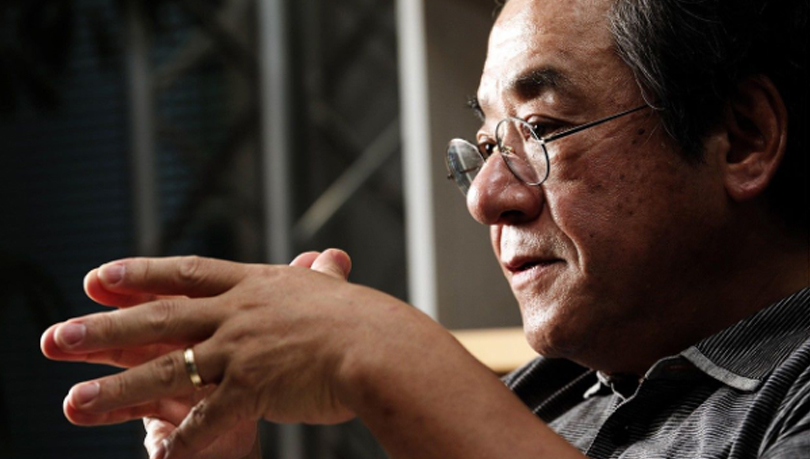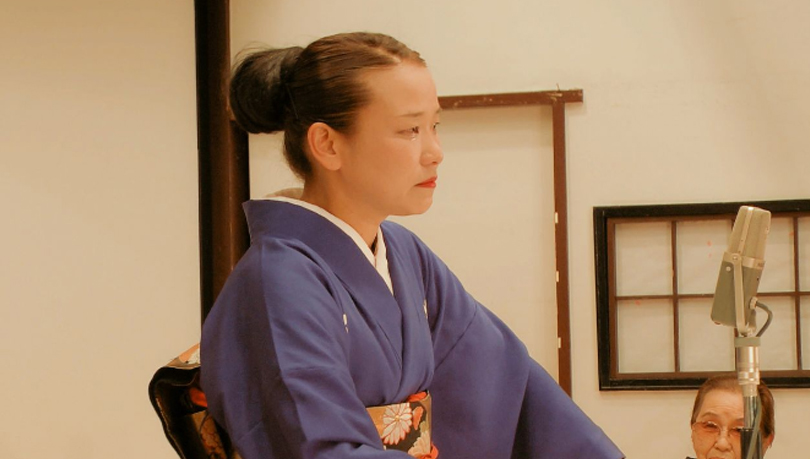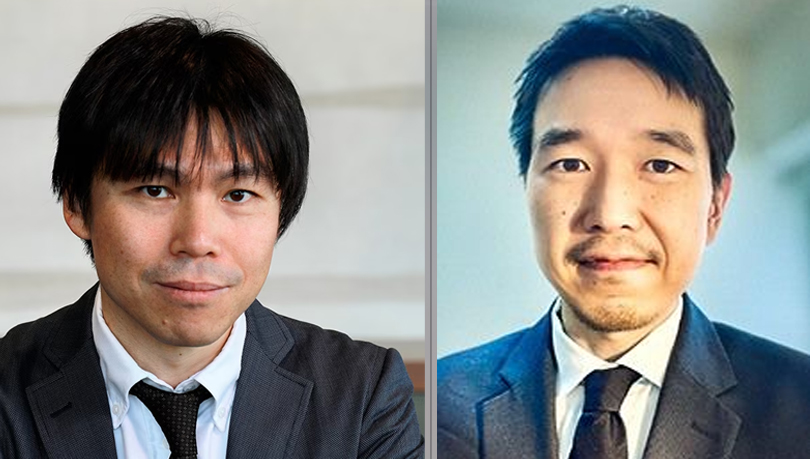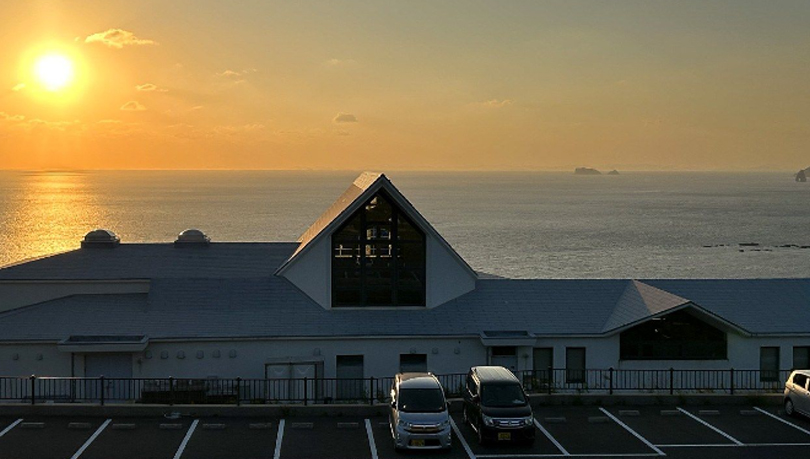Marginal Nation: Bestselling Author’s New Novel Warns of Grim Future for Japan
The author Nire Shūhei has long been popular for his novels taking on economic and corporate themes. His newest work, the 2023 Genkai kokka (Marginal Nation), sounds a warning for Japan’s future prospects in an era of depopulation and rapid change.
The Coming End of the Japanese Economic Model
INTERVIEWER In many rural areas of Japan, people aged 65 and over make up more than half the population. As society ages and depopulation advances, whole communities have become unsustainable. The phenomenon is known as genkai shūraku, or “marginal villages,” in Japanese. But the title of your new book—Genkai kokka, the “Marginal Nation”—suggests that the crisis is not limited to rural regions. How do you see the future for Japan?
NIRE SHŪHEI I think most people in this country still don’t have a real sense of the looming crisis, or at least don’t think of it as something that will have a real effect on their lives. As technological progress continues, though, it’s going to shake up the whole structure and shape of the economy. People are sort of dimly aware of this as a change that is likely to occur at some stage in the future, but that’s about the extent of it. No meaningful steps are being taken to prepare for it. The same is true of the negative impacts of the aging society and declining birthrate. But once these changes start to make themselves felt, it will be too late. This book was driven by a sense of alarm. I’m worried that people are unprepared for the scale of the disaster coming our way.
INTERVIEWER The story opens with a senior Japanese business figure who travels to the US head office of a prestigious consulting company to request research into the future of Japan. At the root of his sense of crisis are the dwindling birthrate and aging population. Demographics suggest that the population of Japan will fall to around 86 million by 2060, a drop that would involve a host of serious problems: the depopulation and collapse of rural communities, the bankruptcy of the current economic model based on domestic demand, professional lives cut short by AI, issues with immigration, the collapse of traditional culture, and an exodus of Japanese talent in search of better opportunities overseas.
NIRE Statistics on demographic trends are the most useful reference point when thinking about the long-term future. Population decline is a terrifying thing, especially for an economy like Japan’s that is so dependent on domestic demand—which accounts for about 70 percent of the total economy. In the decades to come, the size of the economy will naturally shrink, and the current economic model, based on domestic demand, will become untenable by the 2040s. How will the country forge a new way forward when this happens? This is a critical question, but so far there has been virtually no serious discussion about it.
To maintain a population of 100 million, Japan needs a total fertility rate of 2.07. In other words, each couple needs to have slightly more than two children on average. But in Japan today, this has fallen to just 1.2. Each couple is having just over one child on average. When the fertility rate fell below 2.0, that was the moment when society should have realized the seriousness of what was happening and begun a serious debate about how to respond.
Shorter Working Lives and Soaring Unemployment
INTERVIEWER Are there any realistic prospects for putting a brake on the dwindling birthrate? One of the characters in the book puts it like this: “The decision whether to have children is a matter of personal freedom, and involves a wide range of factors including lifestyle, income, and living environment. Improving things won’t be easy.” Your own views are quite pessimistic.
NIRE The government of Prime Minister Kishida Fumio has launched various kinds of child benefits in an attempt to address the falling birthrate, but it’s too little, too late. Frankly, I don’t think these amounts of money would be enough to persuade most people to have children. The reason is simple: there’s a certain lifestyle that has become the norm in Japan over the past few decades, and for most people living this lifestyle, it perhaps makes sense to have one child, but there’s little incentive to have any more.
On an average office worker’s salary, the biggest unit of housing that most people can hope to buy is a two-bedroom apartment. That’s one master bedroom and one room for a child. That’s about the limit of what most couples can afford. And then there are things like school fees to factor in, which also involve a considerable outlay. That’s the current reality: how can people seriously consider raising more children in those circumstances? The odd benefit handout from the government here and there isn’t going to make a substantial difference.
Another thing that worries me are the values and way of thinking of older members of society—the parents of the younger generation. They still believe that if their children graduate from a good college and find a job with a reputable company, that more or less guarantees them success and stability. The big assumption behind this is that the company will continue to exist and that they will continue to have a job there until retirement. But this is a huge misunderstanding of the true situation. Companies like that simply don’t exist anymore.
Even the so-called top companies in heavy industries and finance are scaling down the size of their workforces all the time. It is quite common now for people to have to move companies or be shifted to a smaller subsidiary in their forties. And the situation is only going to get worse in the years to come. More jobs are going to be lost to artificial intelligence as the technology develops, and people’s working lives will get shorter and shorter. People will be discarded by their companies long before retirement age, and are likely to find themselves unemployed with no skills they can parlay into another career.
What are the alternatives? Self-employment? A lot of parents want their children to become doctors. But even a doctor with his or her own practice will struggle without a certain number of patients. In the years to come, it will become hard, if not impossible, for a doctor to make a decent living by operating a clinic in many rural areas—simply because there won’t be enough people around and the local infrastructure will no longer be there to support such a business. The doctors will flood to the big cities and compete for patients in crowded markets. This is the kind of thing that is coming within the next 30 years. The only jobs I can feel optimistic about are in primary industries like agriculture and fishing. As long as there are still people, after all, they’ll still need to eat.
The Struggle to Innovate
INTERVIEWER In the prologue to the book, you cite a line spoken by one of the characters who says: “People’s thinking is still stuck in the Shōwa era [1926–89] . . . With people like that still occupying positions at the center of political and economic influence, it is no surprise that Japan is declining.” These lines seem to suggest that the country’s political and economic elite bear a heavy responsibility for the position in which the country now finds itself. What about the companies that have supported the country’s economic growth over the past decades? Are they now doomed to inevitable decline?
NIRE Every January, the TV news shows pictures from the New Year functions held by Keidanren and the other business lobbies, with all these people exchanging business cards and networking. And it’s always a bunch of old men in suits. Are these really the people who are going to guide the economy forward in this challenging environment? It’s a worrying prospect. It’s the same in politics. Politicians know that older people hold the key to success in elections, so all their policies are designed to be popular with older voters. It’s therefore inconceivable that politicians will provide the leadership we need to move forward. The default position in Japan today is based on protecting the vested interests of the elderly.
This sorry state of affairs means that most of our big companies no longer have the dynamism that would allow them to adapt. One thing that’s difficult for big companies in particular is ensuring that they have the right people in the right positions. Sure, they might bring together talented people from throughout the organization and put them in a special department to generate new business ideas. But these big firms have grown complacent, too used to the profits they can make from their existing business. And because they feel settled where they are, if someone comes up with a good idea for new business, it’s inevitably going to clash with the vested interests of the people still wedded to the older way of doing things. They’ll put all kinds of objections in the way of the new idea: How many years will it take this new idea to become viable? And how will the company make a profit in the years before that happens? These are the kind of objections you have to expect.
You can see this today in the Japanese auto industry. Even though the companies know that the new wave of electric vehicles is upon us, any attempt to adapt to these changes is hampered by objections about what will happen to the suppliers and other business partners under the wider company umbrella—the small companies that supply parts and other services as part of the existing business model. And this hesitancy provides an ideal opening for venture companies to step in and seize their business.
You can see this clearly if you look at the success of Tesla and Chinese electric car manufacturers. In China you can by an EV for the equivalent of around 400,000 yen. Tesla sells all its vehicles by direct sales, so a customer can buy a car online and pay for it electronically. All that remains is go to the handover spot and drive home in the new car. From the manufacturer’s point of view, this means there’s no need to pay commission to a dealer or waste money on sales promotions. In Japan, though, everything is made more complicated by the network of auto dealers. How can Japanese carmakers compete with this?
In the years to come, we’re going to see serious job losses in the auto industry. I used to work for a company that made photographic film, and I saw at first hand how the entire industry went into irreversible decline once digital cameras became standard on mobile phones. People in the industry saw what was coming from an early stage. But they had a nationwide network of retail outlets, and seemed to be making healthy profits. The nature of the business meant that they were able to generate revenue three times, by charging for the film, the developing, and the printing. They were making a fortune.
But that was the problem. Because their profits were still high, it was impossible for them to make a break away from their existing business model. The same thing is likely to happen in the Japanese auto industry. Who will be left in ten years’ time? Toyota will probably be all right, but it’s hard to feel confident about any of the others. That’s the extent of what’s about to happen.
The Inevitability of Change
INTERVIEWER One of the big scenes in the book comes in the second half, at a meeting between the older Japanese businessman who has commissioned the report and the 21-year-old president of a start-up. The young entrepreneur is comfortable with the latest technology and ideas and has made his money from the Metaverse and NFTs. He says: “I have no intention of getting involved in any business limited to Japan. In the online world, the concept of national borders doesn’t exist.”
NIRE Only a few start-ups will ever succeed on the scale of the so-called unicorns. But that doesn’t mean that everyone else is bound to fail. New ideas will always generate new business. The birth of the internet, for example, has created all kinds of business ideas that never existed before. Not everyone can be Steve Jobs. But plenty of people are successful enough on a smaller level and are making enough money. I’m not claiming, by the way, that no one will be able to make a living unless they are successful in the world of venture capital. I just want to warn people that if they continue to put their faith in the old system and cling to the comfort blanket of joining a famous company, they’re likely to be disappointed.
INTERVIEWER The world is changing. People can no longer rely on the knowledge and experiences of their parents’ generation. Through his conversation with the young entrepreneur, your veteran businessman comes to understand: “It’s not possible to maintain Japan the way it was as a country . . . in fact, even thinking in these terms is meaningless.” This new novel provides an approachable and accessible account of some of the problems we’re likely to face in the near future. The question you’re asking us in its pages is: How will we respond?
Source: Nippon

















0 Comments